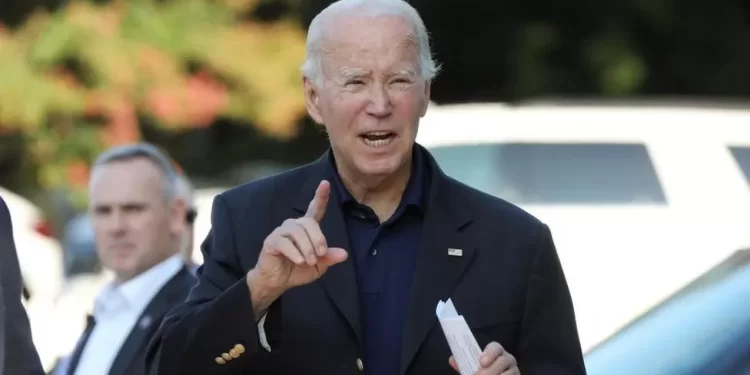US President Joe Biden has said he is “disappointed” that his Chinese counterpart Xi Jinping plans to skip the upcoming G20 summit in India.
Chinese Premier Li Qiang is expected to represent Beijing at the summit in Delhi this week, Reuters reported.
“I am disappointed… but I am going to get to see him,” Mr Biden told reporters on Sunday, but did not say when that meeting may take place.
The two leaders last met at the summit in Indonesia last year.
Mr Xi had earlier said he would travel to the Indian capital for the meeting – but China’s foreign ministry would not confirm his attendance when asked to do so at a regular press briefing on Thursday.
News reports, citing unnamed sources familiar with preparations for the annual meeting, say Mr Xi does not plan to attend this year’s summit.
Just last week, India protested after Beijing released a map that claims the state of Arunachal Pradesh and the Aksai Chin plateau as Chinese territory.
Mr Xi and Mr Biden may still have an opportunity to speak in November, at a meeting among leaders of the Asia Pacific Economic Cooperation in San Francisco.
The withdrawal comes as US-China ties have continued to deteriorate in the past year.
About two months after the two leaders met in the Indonesian island of Bali last November, an alleged Chinese spy balloon in the US skies punctured hopes for a re-set in bilateral relations.
The two countries disagree over a range of issues, including human rights in Xinjiang and Hong Kong, territorial claims to Taiwan and the South China Sea, and Beijing’s growing domination of a host of industries.
Meanwhile, Mr Xi continues to portray Beijing as a leader of the developing world and rallying support for an alternative to the Washington-led world order.
In a visit to South Africa last month to meet with leaders of the Brics nations, he criticised the West’s “hegemony” and urged developing nations to “[shake] off the yoke of colonialism” in his speeches.
The Brics originally refers to five-nation club of developing countries, including Brazil, Russia, India, China and South Africa.
Six new countries – Argentina, Egypt, Iran, Ethiopia, Saudi Arabia and the United Arab Emirates – are set to join in January, in what’s widely seen as a diplomatic win for Beijing.















